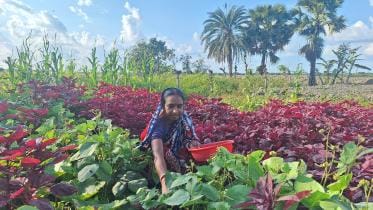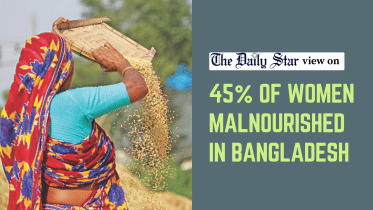Women's healthcare In Bangladesh
Farming against the salt: Women farmers on the frontline of the Sundarbans
In Bangladesh’s saline delta, climate-vulnerable women like Jamuna and Pushpa lead adaptation with innovative farming and resilience. Despite gender inequality and health risks, they drive sustainable solutions for survival, food security, and environmental justice.
18 June 2025, 12:00 PM
Building a healthier Dhaka: Why understanding women’s health benefits us all
Back in the day, discussing the health issues of women was nothing short of a taboo. A serial offender would have an easier time getting a break than someone who openly discusses topics ranging from menstrual cramps to pregnancy woes. This phenomenon was not only confided within your household; it was a global one, and unfortunately, remnants of this taboo still linger in our society today.
3 March 2024, 08:18 AM
Women’s health and well-being must be prioritised
New study reveals worrying level of malnutrition among women
18 February 2024, 10:00 AM


